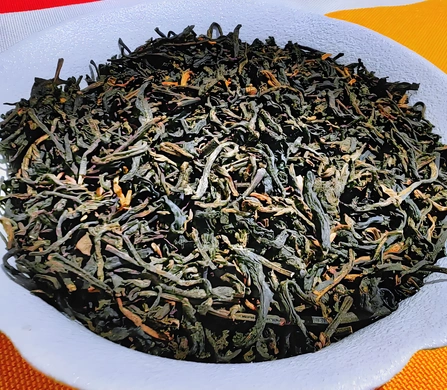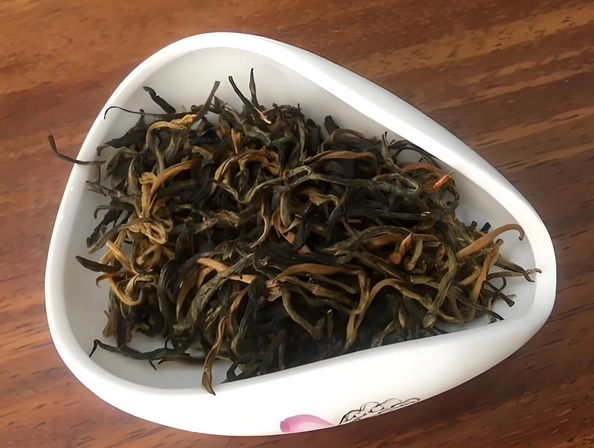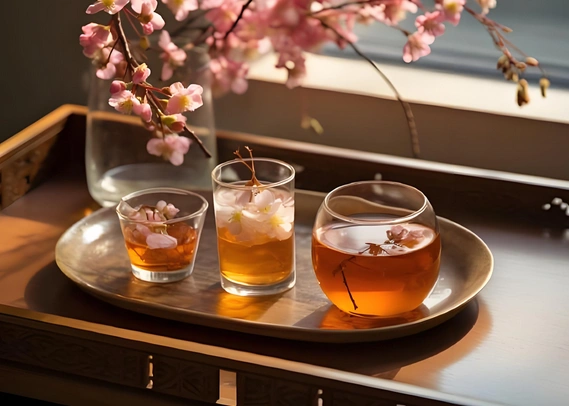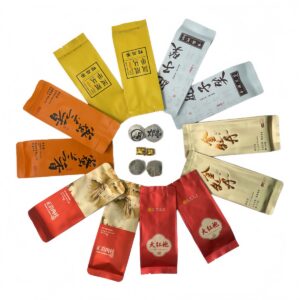Dark tea vs black tea—a comparison that often confuses tea enthusiasts and newcomers alike. While both originate from the Camellia sinensis plant, their processing methods, flavor profiles, and health benefits diverge significantly. Understanding these differences can enhance your tea-drinking experience and help you choose the right brew for your needs.
What Is Dark Tea vs Black Tea?
Dark tea, known as “hei cha” in Chinese, undergoes a unique post-fermentation process involving microbial activity, resulting in a rich, earthy flavor and potential health benefits. In contrast, black tea is fully oxidized, offering a bold, robust taste with higher caffeine content. Despite their similar names, these teas differ in production and characteristics.

Historical and Cultural Context
Black tea has a long-standing history, with origins tracing back to China and later gaining popularity in Western countries. Varieties like Assam and Darjeeling have become staples in many cultures. Dark tea, including Pu-erh and Liubao, holds cultural significance in regions like Yunnan and Guangxi, often associated with traditional health practices.
Processing & Production Differences
Dark Tea’s Microbial Fermentation Process
Dark tea undergoes post-fermentation, where microbial activity transforms the tea leaves over time. This process imparts complex flavors and potential probiotic benefits.
Black Tea’s Oxidation Process
Black tea is produced through full oxidation, where enzymes in the tea leaves react with oxygen, developing its characteristic dark color and bold flavor.
These distinct processes result in unique taste profiles and health properties for each tea type.
Flavor Profiles & Tasting Notes
Dark Tea Character: Earthy, Woody, Mellow Notes
Dark tea offers a deep, earthy flavor with woody undertones and a mellow finish. Aged varieties like Pu-erh develop even more complexity over time.
Black Tea Character: Malty, Brisk, Sometimes Floral Notes
Black tea presents a strong, malty taste with briskness and occasional floral hints, making it a favorite for those seeking a robust cup.
The aging process enhances dark tea’s depth, while black tea is best enjoyed fresh to retain its vibrant flavors.

Health Benefits Comparison
Dark Tea Benefits: Gut Health, Antioxidants, Aged Dark Tea Advantages
Dark tea is rich in antioxidants and may support gut health due to its fermentation process. Aged dark teas like Pu-erh are believed to aid digestion and metabolism.
Black Tea Benefits: Heart Health, Energy Boost, Polyphenols
Black tea contains polyphenols that support heart health and provide an energy boost, making it a suitable morning beverage.
Choosing between dark tea and black tea depends on your health goals and taste preferences.
Brewing & Serving Recommendations
Brewing Dark Tea Tips: Water Temperature, Steep Times, Multiple Infusions
Use water at around 90°C (194°F) and steep dark tea for 3-5 minutes. It can be re-steeped multiple times, revealing new flavors with each infusion.liquidinsider.com
Brewing Black Tea Tips: Ideal Steep Times, Milk/Sugar Pairings
Brew black tea with water at 95°C (203°F) for 3-5 minutes. It pairs well with milk or sugar, depending on personal preference.
Dark tea is often enjoyed after meals for its digestive benefits, while black tea serves as an energizing start to the day.

How to Incorporate Dark Tea vs Black Tea into Daily Routine
Start your morning with black tea for a caffeine boost. After heavy or oily meals, opt for dark tea to aid digestion. In the afternoon, choose based on your energy needs and flavor preference.
Selecting & Storing Quality Tea
For dark tea, look for reputable sources offering aged varieties like Pu-erh or Liubao. Store in a cool, dry place to allow continued aging. Black tea should be stored in airtight containers away from light and moisture to preserve freshness.
FAQs on Dark Tea vs Black Tea
Which is better for weight management—dark tea vs black tea?
Dark tea may support weight management through its fermentation properties, while black tea provides a metabolism boost due to caffeine.
Can I drink dark tea and black tea interchangeably?
Yes, but consider their caffeine content and digestive effects when choosing.
How does caffeine content compare in dark tea vs black tea?
Black tea generally has higher caffeine levels than dark tea, making it more stimulating.
Conclusion: Choosing Between Dark Tea vs Black Tea
Understanding the differences between dark tea and black tea allows you to select the right tea for your lifestyle and health goals. Experiment with both to discover which suits your palate and needs best.
Note: This article is for informational purposes only and does not constitute medical advice. Consult a healthcare professional for personalized recommendations.



